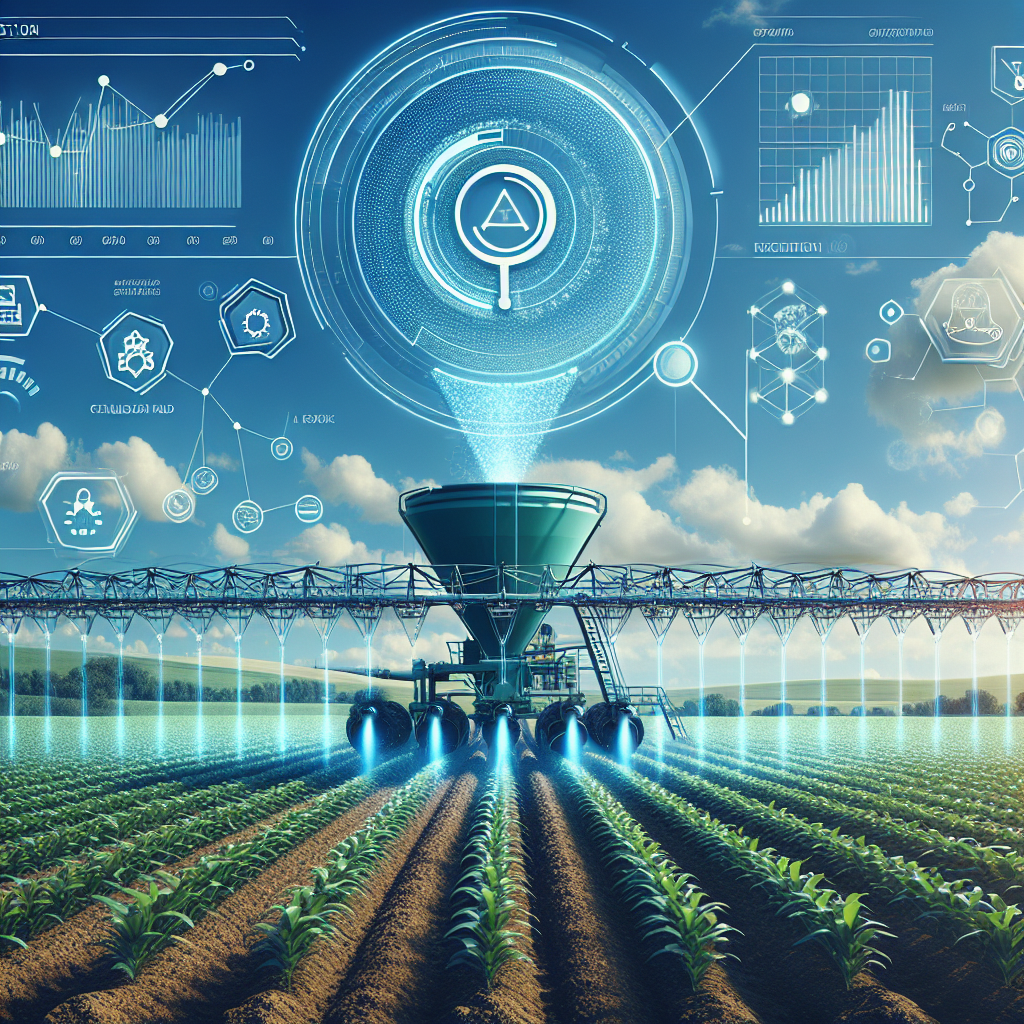In recent years, the agriculture industry has seen a significant shift towards using technology to improve crop production and sustainability. One area where technology has played a crucial role is in precision crop nutrition and fertilizer management. By leveraging artificial intelligence (AI) and data analytics, farmers can now make more informed decisions about when and how much to fertilize their crops, leading to higher yields and reduced environmental impact.
AI algorithms can analyze data from multiple sources, including satellite imagery, weather forecasts, soil samples, and crop health sensors, to provide farmers with real-time insights into the nutrient needs of their crops. This allows farmers to apply fertilizers more precisely, avoiding over or under-application, which can lead to nutrient wastage or nutrient deficiencies in the soil.
One of the key benefits of using AI for precision crop nutrition is the ability to optimize fertilizer use, reducing both costs and environmental impact. By accurately predicting the nutrient requirements of crops, farmers can avoid over-applying fertilizers, which can lead to nutrient runoff into waterways and groundwater contamination. This not only helps to protect the environment but also saves farmers money on unnecessary inputs.
In addition to optimizing fertilizer use, AI can also help farmers to monitor the health of their crops more effectively. By analyzing data from sensors and satellite imagery, AI algorithms can detect early signs of nutrient deficiencies or pest infestations, allowing farmers to take corrective action before significant damage occurs. This proactive approach to crop management can help farmers to increase yields and reduce losses due to pests and diseases.
Furthermore, AI can also help farmers to tailor their fertilizer applications to the specific needs of different crops and soil types. By analyzing historical data and trends, AI algorithms can provide recommendations on the best type and amount of fertilizer to apply to each crop, taking into account factors such as soil pH, nutrient levels, and crop rotation practices. This personalized approach to crop nutrition can help farmers to achieve optimal yields while minimizing environmental impact.
Overall, leveraging AI for precision crop nutrition and fertilizer management can help farmers to improve crop yields, reduce costs, and protect the environment. By using data-driven insights to make informed decisions about fertilizer applications, farmers can optimize their crop production practices and achieve sustainable agriculture.
FAQs:
Q: How does AI help farmers in precision crop nutrition and fertilizer management?
A: AI algorithms analyze data from multiple sources to provide farmers with real-time insights into the nutrient needs of their crops, allowing for more precise fertilizer applications and optimizing crop nutrition.
Q: What are the benefits of using AI for precision crop nutrition?
A: Some of the benefits include optimizing fertilizer use, reducing costs, increasing crop yields, and minimizing environmental impact by avoiding over-application of fertilizers.
Q: How does AI help farmers monitor the health of their crops?
A: AI algorithms can analyze data from sensors and satellite imagery to detect early signs of nutrient deficiencies or pest infestations, helping farmers to take corrective action before significant damage occurs.
Q: How can AI help farmers tailor their fertilizer applications to different crops and soil types?
A: By analyzing historical data and trends, AI algorithms can provide recommendations on the best type and amount of fertilizer to apply to each crop, taking into account factors such as soil pH, nutrient levels, and crop rotation practices.
Q: What are the overall benefits of leveraging AI for precision crop nutrition and fertilizer management?
A: The benefits include improving crop yields, reducing costs, and protecting the environment by optimizing crop production practices and achieving sustainable agriculture.

